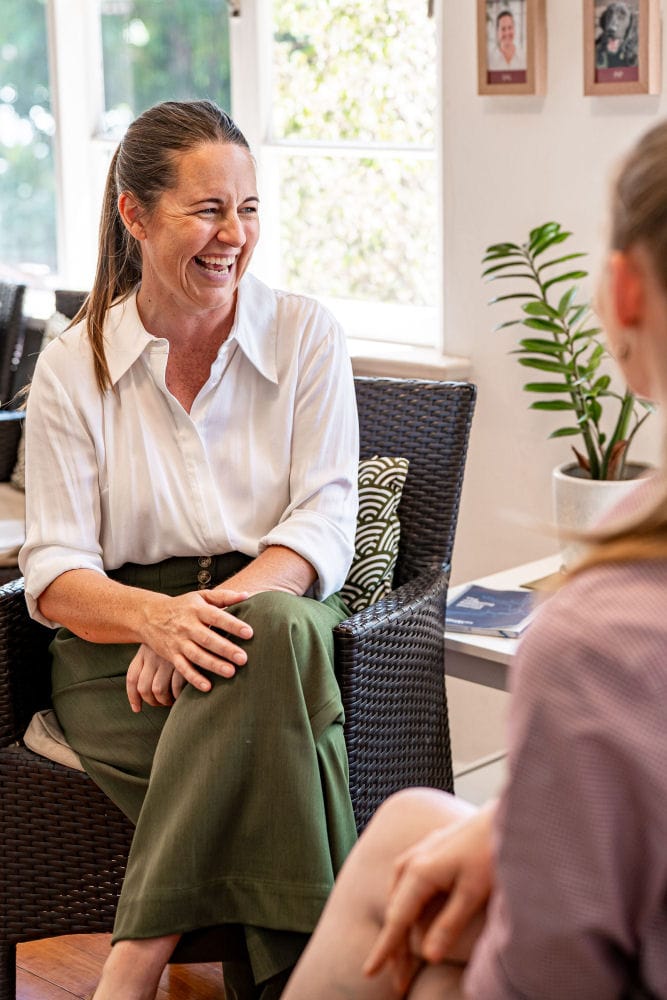Physiotherapy Column
We all have a lot going on: work, family, friends, deadlines, goals, and the never-ending to-do list. So when your body starts showing signs of pain or stiffness on top of all that? It can feel like the last straw.
But here’s something important to know:
Your brain is doing its best to protect you.
Our brains are incredible. They take in information every second – from your body, your surroundings, your emotions, and your thoughts.
It’s like having a very dedicated manager who’s trying to juggle everything at once.
Sometimes, though, that manager gets overloaded. When there’s too much on the desk – physically, mentally, emotionally – the brain starts to send up flares.
And those flares show up as symptoms.
You might notice things like:
Sound familiar?
When someone walks through the Barefoot doors, part of what we do is zoom out and look at everything that might be adding to the body’s load.
Because your brain doesn’t separate the physical from the emotional – it just adds it all together.
Here are some of the types of load we look at:
Musculoskeletal load
Posture, tight muscles, stiff joints, old injuries, training habits – these are often the parts we can help with most directly as physios.
Work load
Big deadlines, long hours, high-stress roles. Sometimes you can ease this; sometimes it’s just the season you’re in.
Sleep load
A tired brain struggles to recover. Some can control this easily; others are at the mercy of newborns or roadworks outside the window.
Rest and down time
Recovery isn’t a luxury. Even small, regular moments to reset can make a big difference.
Nutrition load
What fuels your body also fuels your brain. Sometimes you’ve got this sorted; other times it’s airport food and takeaway weeks – and that’s ok.
Emotional load
Stress, worry, fear, grief – all of it counts. These invisible loads often weigh the most.
General health load
Illness, hormonal changes, infections, immune or autoimmune conditions. All of these affect how well your body copes and heals.
There’s no one right way to manage it.
One person might thrive on regular gym sessions and early nights.
Another might find relief in gardening, naps, or walking the dog.
What matters most is awareness: noticing when the brain’s bucket is getting full and taking small, consistent steps to empty it.
PLEASE TAKE THIS AS YOUR PERMISSION SLIP TO DO WHAT YOU NEED FOR YOURSELF
Ideas:
At Barefoot, the focus is on helping you reduce the musculoskeletal load and spotting the early signs before they snowball.
Together, we map out what else might be going on and how to manage it.
This might include looking at:
A full-body assessment helps us work out what’s driving your symptoms: physical, neurological, or a bit of both – and how to support your body right now.
And remember: you don’t have to be in pain to come in.
Prevention is one of the best ways to keep living your Barefoot Lifestyle for years to come.

When your body starts whispering (or yelling), it’s not being difficult, it’s asking for help.
Sometimes that help is rest, sometimes it’s movement, sometimes it’s hands-on care.
You don’t need to figure it out on your own.
Book in today and let’s work out what your body needs to feel calm, capable, and back to doing what you love.
AT BAREFOOT PHYSIOTHERAPY, WE’RE PROUD TO SERVE CLIENTS FROM ALL CORNERS OF AUSTRALIA WHO MAKE THE JOURNEY TO OUR CLINIC IN TENNYSON, BRISBANE.
Below is a list of nearby suburbs that many of our local clients come from. Whether you’re near or far, we’re dedicated to providing exceptional care tailored to your needs.